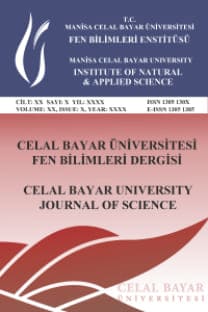Numerical Investigation on Composite Mono-Leaf Springs Reinforced with Polyurethane/Carbon Nanotubes (PU/CNTs) Nanoweb Interlayers
Composite materials have been widely used in automobile industry to reduce vehicle weight and cut CO2 emissions. With the rapid advancement of nanotechnology, it is now possible to improve the mechanical performance of these materials more than ever before. In this study, mechanical behavior of carbon fiber/epoxy (CF/EP) composite mono-leaf springs reinforced with polyurethane/carbon nanotubes (PU/CNTs) nanoweb interlayers was investigated numerically. The numerical analyses were carried by using ANSYS Workbench with ACP module. The numerical verification of the finite element model was carried out by comparing numerical results against analytical calculations. Then, the verified FE model was extended to this study. The numerical results showed that the stiffness of the composite wave springs could be increased by 18% with the addition of PU/CNTs nanofibers in the interlaminar region without weight and thickness increase. It was also observed that the natural frequency values increased by 8% after the addition of these nanofibers.
Keywords:
leaf spring, composite, stiffness, polyurethane carbon nanotubes,
___
- 1. Greenhalgh, ES, Rogers, C, Robinson, P, 2009. Fractographic observations on delamination growth and the subsequent migration through the laminate, Composites Science and Technology, 2009, 69(14), 2345-2351.
- 2. Greenhalgh ES, Failure analysis and fractography of polymer composites, CRC Press, 2009, pp. 20-30.
- 3. Beylergil, B, Tanoglu, M, Aktaş, E, 2017. Enhancement of interlaminar fracture toughness of carbon fiber/epoxy composites using polyamide 6/6 electrospun nanofibers, Journal of Applied Polymer Science, 2017, 134(35): 45244.
- 4. Jain A, Jindal A, Lakhiani P, Mishra S, Mathematical approach to helical and wave spring used in suspension system: A review, International Journal of Mechanical and Production Engineering, 2017, 5(6), 78-82.
- 5. Gaur N, Tripathi K, Kanchwala H, Analysis of load deflection characteristics of wave washer spring using 3D CAD modeling, International Journal of Applied Engineering Research, 2012, 7(13), 1525-1535.
- 6. Ashwini K, Mohan Rao CV, Design and Analysis of Leaf Spring using Various Composites – An Overview, Materials Today: Proceedings, 2018, 5(2), 5716-5721.
- 7. Zhang, H, Bharti, A, Li, Z, Du, S, Bilotti, E, Peijs, T, Localized toughening of carbon/ epoxy laminates using dissolvable thermoplastic interleaves and electrospun fibres, Composites Part A: Applied Science and Manufacturing, 2015, 79, 116–126.
- 8. Li, G, Li, P, Yu, Y, Jia, X, Zhang, S, Yang, X, Ryu, S, Novel carbon fiber/epoxy composite toughened by electrospun polysulfone nanofibers, Materials Letters, 2008, 62(3), 511–514.
- 9. Li, G, Li, P, Zhang, C, Yu, Y, Liu, H, Zhang, S, Jia, X, Yang, X, Xue, Z, Ryu, S, Inhomogeneous toughening of carbon fiber/epoxy composite using electrospun polysulfone nanofibrous membranes by in situ phase separation, Composites Science Technology, 2008, 68(3–4), 987–994.
- 10. Saghafi, H, Brugo, T, Minak, G, Zucchelli, A, The effect of PVDF nanofibers on mode-I fracture toughness of composite materials, Composites Part B: Engineering, 2015, 72, 213–216.
- 11. Beckermann, GW, Nanofiber interleaving veils for improving the performance of composite laminates. Reinforced Plastics, 2017, 61(5), 289-93.
- 12. Charde, RB, Bhope, BV, Investigation of stresses in master leaf of spring by FEM and its experimental verification, International Journal Engineering Science and Technology, 2012, 4(2), 633-640.
- 13. Liu, L, Zhang, H, Zhou, Y, Quasi-static mechanical response and corresponding analytical model of laminates incorporating with nanoweb interlayers, Composite Structures, 2014, 111, 436-445.
- ISSN: 1305-130X
- Başlangıç: 2005
- Yayıncı: Manisa Celal Bayar Üniversitesi Fen Bilimleri Enstitüsü
Sayıdaki Diğer Makaleler
Hale SEÇİLMİŞ CANBAY, Mahmut DOĞANTÜRK
Nazlıcan Gözaçan, Özgür Kabadurmuş
Microstructural Characterisations of Welded Shape Memory Alloys
The Effect of Brassinosteroid on Pollen Germination and Tube Growth in Three Dianthus Species
Compatibility Studies of Sildenafil with Different Excipients by Using TGA, DSC, XRD and FTIR
Hale Seçilmiş Canbay, Mahmut Doğantürk
